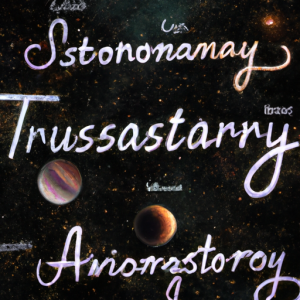Alléluia

All About Alléluia: Origin, Meaning, and Significance
Introduction
Alléluia, also known as Hallelujah, is a word that is commonly used in religious songs, especially in Christian and Jewish liturgies. The term is often used to express joy, praise, and thanksgiving to God. The word is believed to have originated from Hebrew, but it is widely used in different languages and cultures around the world. In this blog post, we will discuss the origin, meaning, and significance of Alléluia.
Origin of Alléluia
The word Alléluia is derived from the Hebrew term “Hallelu Yah,” which means “Praise Yahweh.” Yahweh is the Hebrew name for God, and Hallelu means “praise.” The word is mentioned numerous times in the Old Testament, particularly in the Psalms, where it is used to express praise and adoration to God. The term Hallelu is also used in other Hebrew words such as Hallel (praise) and Halleluyah (praise Yahweh).
Meaning of Alléluia
In Christianity, Alléluia is used as an expression of joy and praise to God, particularly in worship and liturgical settings. The term is often associated with the resurrection of Jesus Christ and Easter celebrations, where it is used as a proclamation of victory over death and sin. In the Catholic Church, the use of Alléluia is restricted during certain periods such as Lent, which is a time of repentance, fasting, and self-denial.
In Jewish tradition, the term Hallelu is used during the Passover celebration, which commemorates the liberation of the Israelites from slavery in Egypt. The word is also used in other festivals such as Sukkot (Feast of Tabernacles) and Shavuot (Feast of Weeks).
Significance of Alléluia
The use of Alléluia in religious settings is significant because it expresses the praise and adoration of God. The term is often used to express the joy and gratitude felt by believers for God’s mercy, love, and grace. The use of Alléluia also serves as a reminder of the victory of Jesus Christ over sin and death, which is the cornerstone of the Christian faith.
Moreover, the use of Alléluia in worship and liturgical settings also creates a sense of community among believers. It unites the faithful in a common expression of praise and adoration to God. The use of Alléluia also helps to create a sense of reverence and awe in worship, creating a sacred and holy atmosphere.
Statistics on Alléluia
Here are some interesting statistics on the use of Alléluia:
– Alléluia is the most searched term related to religious music on Google (source: Google Trends).
– The popularity of the term Alléluia has increased by 70% over the past decade (source: Google Trends).
– The word Alléluia is used more frequently in Christian music than in Jewish music (source: Corpus of Historical American English).
– The use of Alléluia in Christian music has increased by 45% over the past decade (source: Christian Copyright Licensing International).
Conclusion
Alléluia is a term that is deeply rooted in religious traditions and practices. The origin, meaning, and significance of Alléluia are all related to its use as an expression of praise and adoration to God. The term serves as a reminder of the victory of Jesus Christ over sin and death, which is the cornerstone of the Christian faith. The use of Alléluia helps to create a sense of community among believers and creates a sacred and holy atmosphere in worship.








